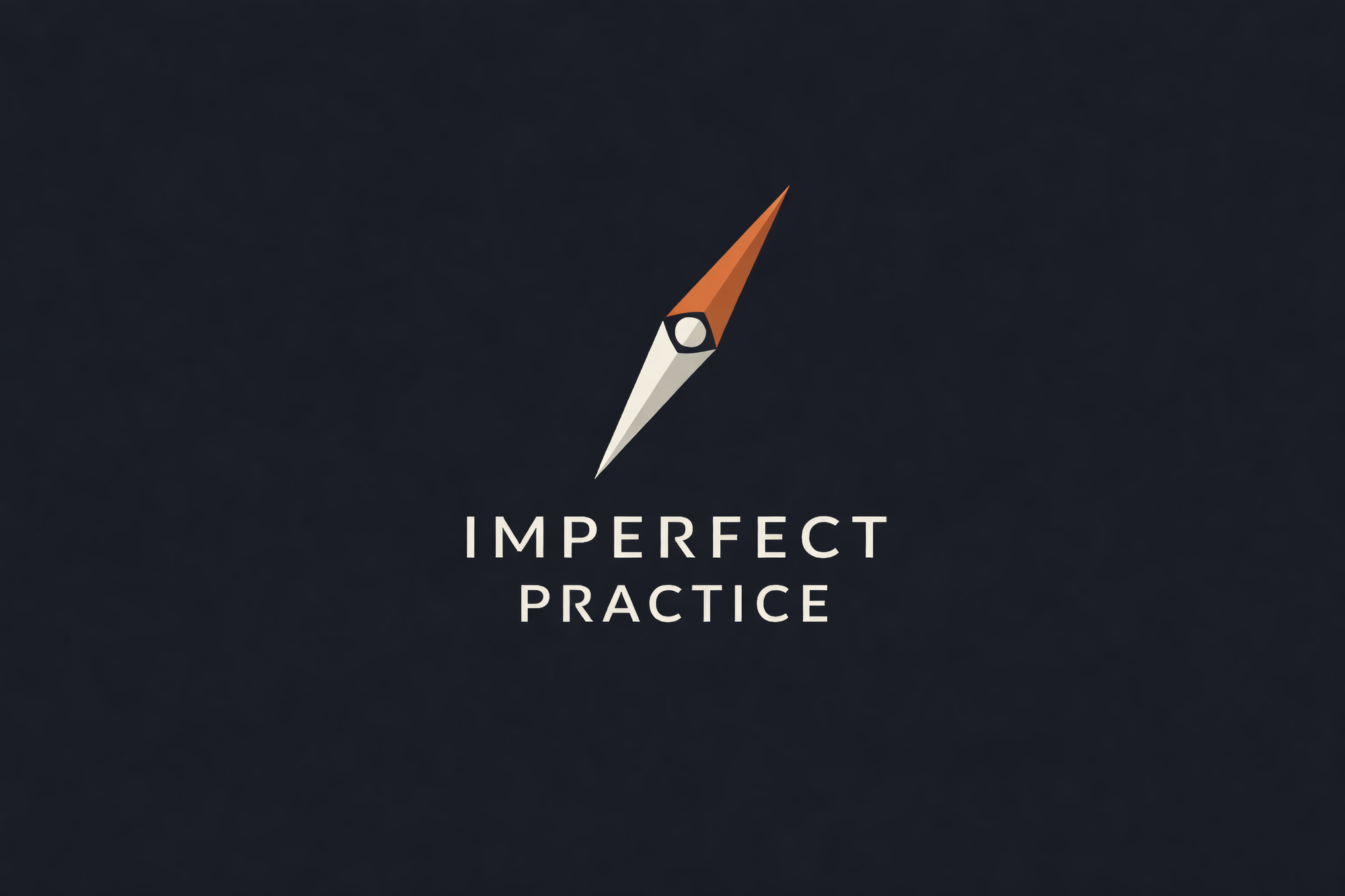Finding Fulfillment Through Tiny Experiments

What if the key to changing the course of your life was changing your relationship with "productivity"?
Tiny Experiments is one of those books that I don't recall precisely how I became aware of it. It seemed to come from nowhere and be everywhere simultaneously. It was an event horizon I could not escape.
Interviews with the author arrived in my article feeds. The book was chosen as a "book club" entry for an online community I participate in. Podcasters I listen to were discussing it seemingly every time I turned around.
And I realized it was already in my Kindle library.
This isn't the first time this has happened to me. I had The Martian by Andy Weir in my library when it was first self-published, long before it became a movie.
Maybe I'm just unknowingly ahead of the zeitgeist.
Tiny Experiments was born as the author, Anne-Laure Le Cunff, realized she was unfulfilled in what, for all outside appearances, was her dream job.
In the book, she makes a compelling case that to find freedom, fulfillment, and satisfaction in life, we have to be willing to experiment, to procrastinate, and to reinvent.
We have to willingly accept the existential dread that comes from embracing the unknown.
Just a few years ago, this would have terrified me.
Now, it resonates.
It was the book's ubiquity that convinced me to crack it open. By the time I had finished the introduction, I was already on board. I found my own life experiences of the past decade in those pages. I felt inspired.
And this entire endeavor began.
But why? What was it about Tiny Experiments that resonated with me so?
In medicine, as in many professions, there is an endless pressure to do more, to be more. Administrators are constantly badgering us to see more patients, to do more surgeries.
They don't say the quiet part, but we all know the truth: They are pushing us to make more money for the organization.
Such is capitalism.
The result is that every time they offer to "help" us, it's a thinly veiled attempt to increase productivity. The humanity has been so utterly stripped out of the process that we are left empty tools for the machine. Corporate bullshit with names such as "Optimization" is foisted upon us without our input or consent.
A profession that should be the most human of all becomes an automated millstone, spinning and grinding.
And we are the grist.
It is untenable and unsustainable. I was looking for solutions, for options—something needed to change.
I thought the answers would lie in changing my behaviors. You know, really dialing things in. I read Stick With It by Sean D. Young and Atomic Habits by James Clear.
I found value in both books. They offered clear suggestions of steps to make lasting change and insight into the benefits of said change.
But they didn't inspire me.
Even thinking about applying the methods and tools both books offered felt like work.
Then I read Tiny Experiments, and my outlook changed.
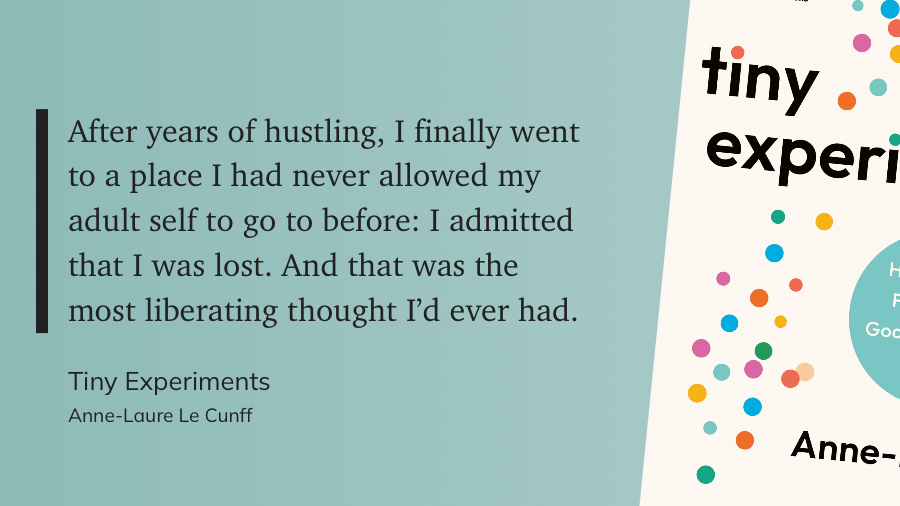
Burnout and I were old friends. I’d tried to mitigate it. I’d hustled. I’d read the productivity guides, watched the videos, tried the apps, and taken the courses.
I still felt unfulfilled.
I, too, was lost.
And realizing that, admitting that fact, and accepting it for what it was, unlocked something inside of me.
And I was thrilled.
My work wasn’t fulfilling me. It took so much more than it gave back. I couldn’t just continue doing what I had been doing. At the same time, there are so many aspects of my job that I love. I don't want to leave it. So, I had to find other ways to fulfill myself.
But I felt like a failure. I was a doctor who didn't want to be identified only as a doctor. I was a fraud. I was plagued with guilt.
I didn't need to be.
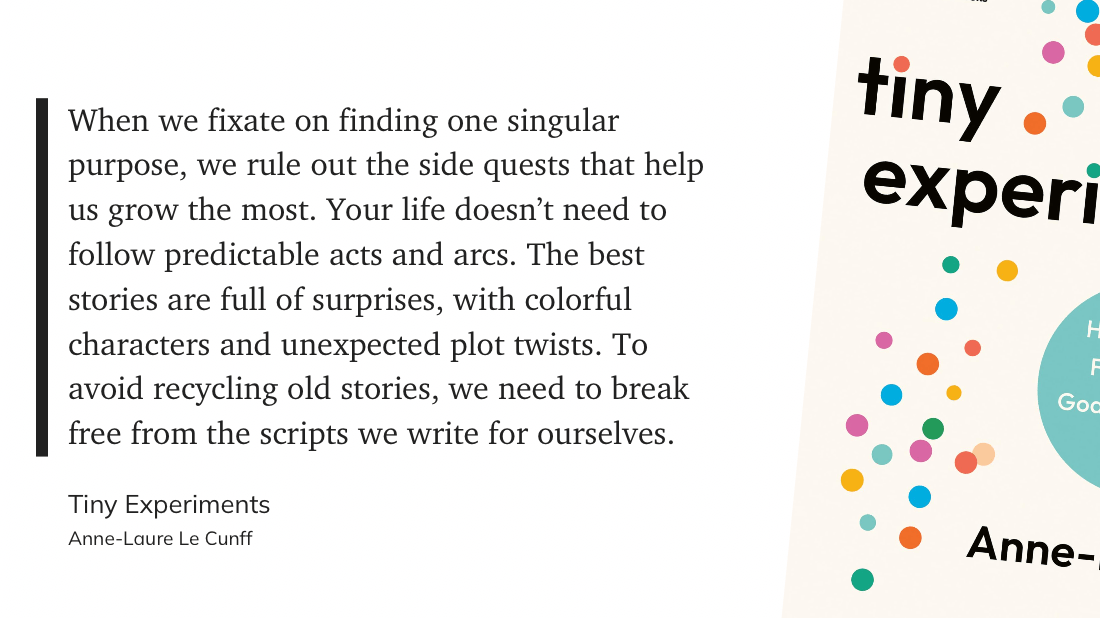
This is the key.
In Tiny Experiments, Le Cunff posits that traditional, focused goal-setting is a setup for failure. I've long felt that New Year's resolutions fell into this category. But she argues that the linear nature of most goal-setting can force us onto a path that isn't the best one for us.
S.M.A.R.T. goals are the key to unlocking our potential and happiness. Or so we are told. And any deviations from this linear path are looked upon as failure.
Our 6-month, 3-year, and 5-year plans become prisons, locking us into something we don't even know if we truly want.
There is a different option.
Tiny experiments.
A scientist herself, Le Cunff argues that we will find more fulfillment if we treat life as a laboratory. And just like in the lab, some experiments are resounding successes and change the course of science, while the vast majority are failures or only minor successes.
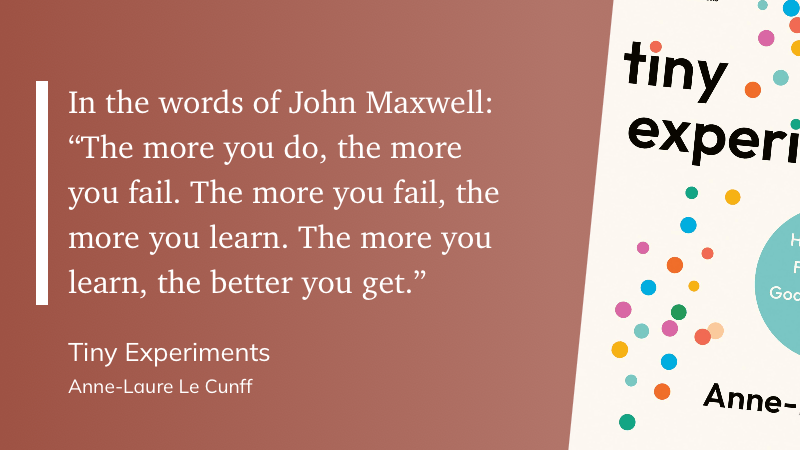
Adopting a mindset where failure is at least as important as success frees us. Our failures become data points, not damning commentaries on our worth as humans. We overcome the anxiety and uncertainty that plague us. We learn to embrace it, look forward to it, and become excited about the truths that will eventually be revealed as we explore that unknown.
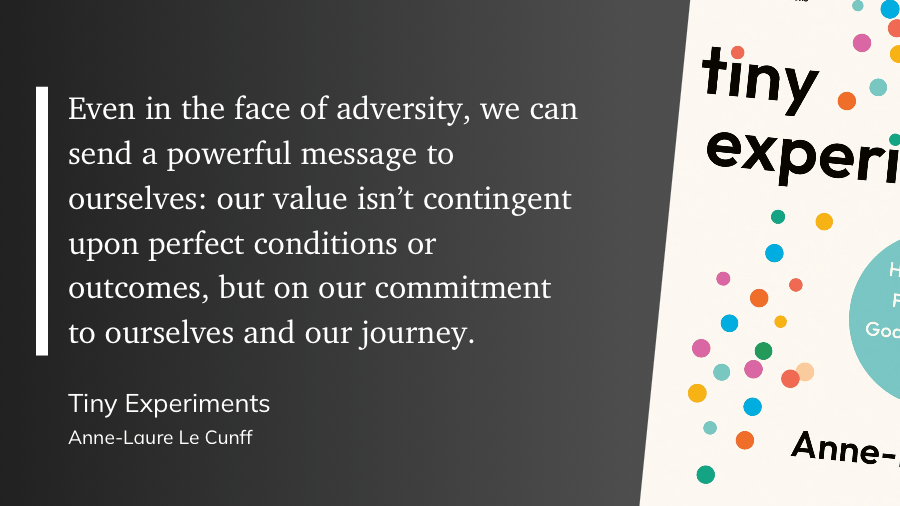
We accept that our existence is enough. It is worth celebrating. We have intrinsic value as people, not just in what we produce. We find power in committing to ourselves, not our output.
In Tiny Experiments, Le Cunff lays out a practical and clear method to run these types of experiments in our lives. She offers a comprehensive framework to get us on the path to living an experimental life that is both approachable and easy to follow, suggesting mindset changes that will put us on the path to personal experimentation.
She walks us through a systematic method of making a pact with ourselves, taking steps consistent with that pact, and then re-evaluating with a clear "triple check" method of the roadblocks encountered along the way.
In essence, Tiny Experiments is a manual for better living, for living a life unfettered by the fear and anxiety that so many "self-help gurus" throw at us constantly. They do their best to convince us that we must use their perfect system to set perfect goals, or we will remain eternally unfulfilled.
I think those are all lies.
There is no fear-mongering in Tiny Experiments. Just one question:
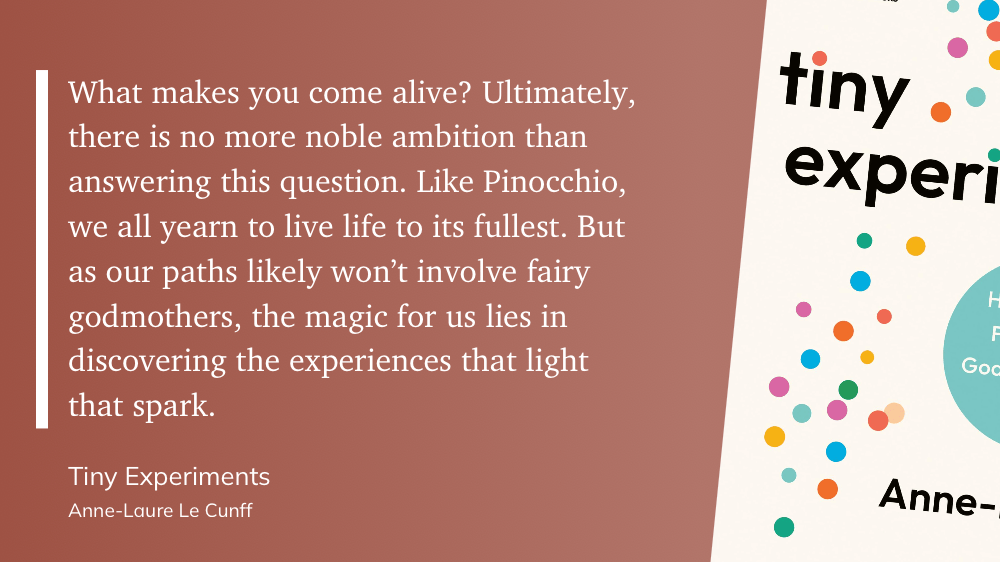
We are encouraged to find those answers.
I've thought about aspects of this book every day since I started reading it. It informs how I am approaching my life on a daily basis. Some days I do great. I check off tasks, and I get things done.
Others are less than that.
And that is awesome. I learn from those days. Rather than beating myself up, I ask questions. I make adjustments, embrace another day, and then reevaluate. I keep seeking those answers.
I haven't felt this passionate about a book in years. It literally changed my life.
But in a tiny way.
As intended.
